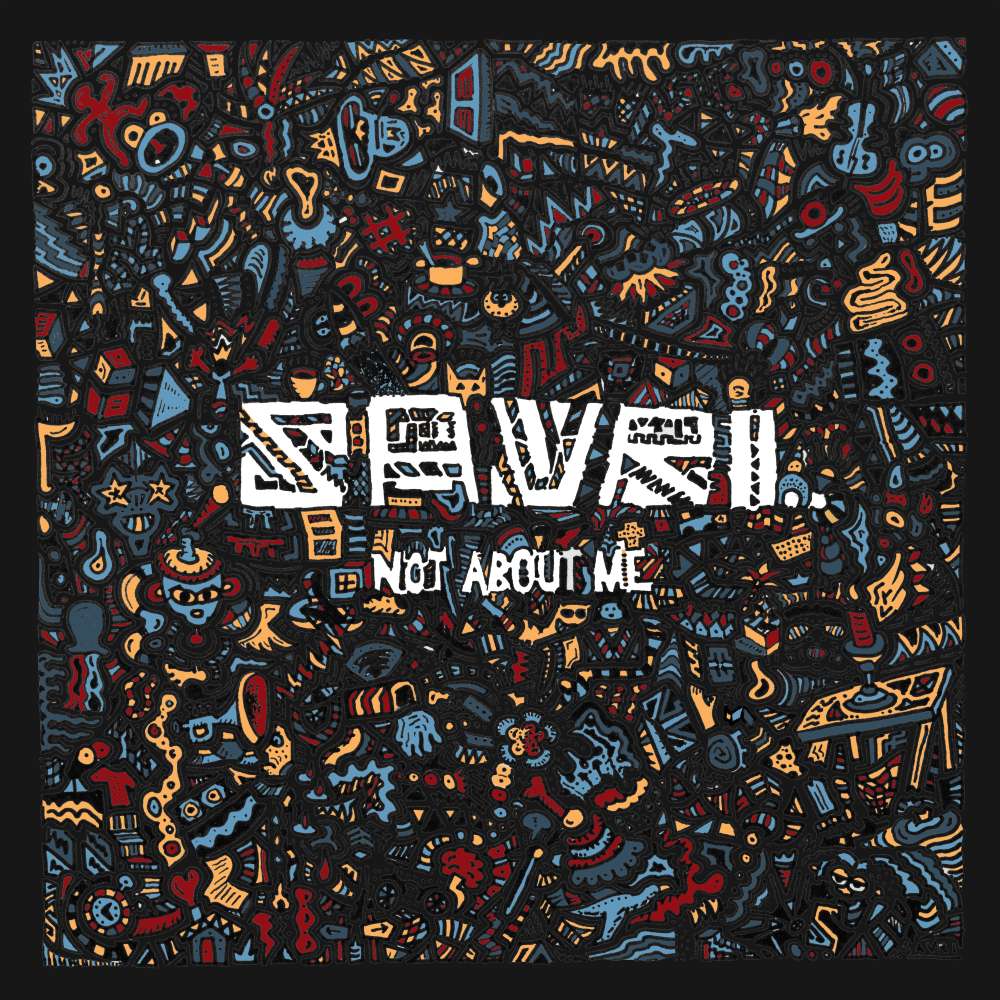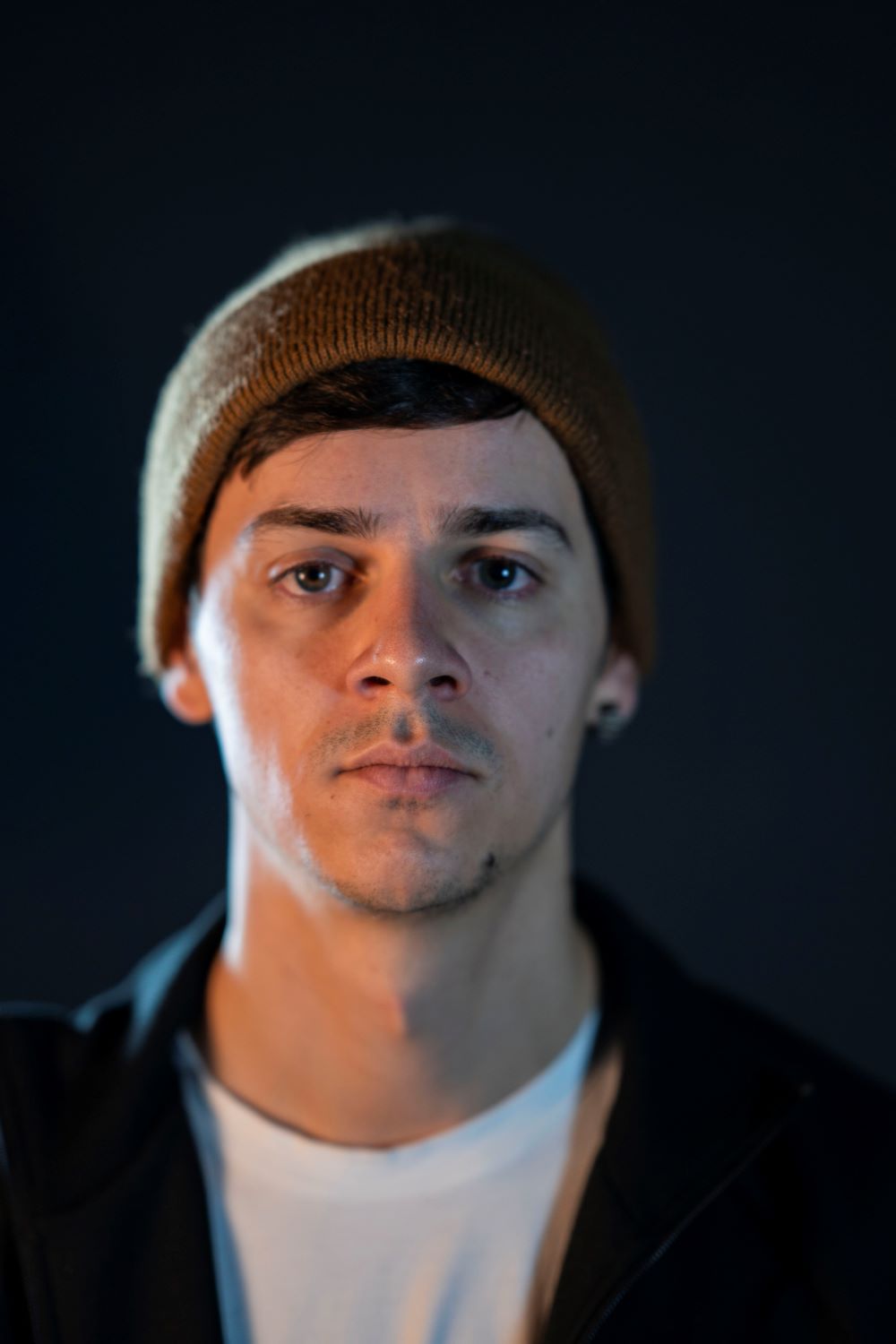BELEDO is Uruguayan born, NYC based multi-instrumentalist, predominantly guitarist and pianist, who grew up in Montevideo and was a prominent player on the jazz scene in his native Uruguay, is joined by drummer Kenny Grohowski, who in addition to taking part in several MoonJune recording dates, has worked with John Zorn, John Medeski, Imperial Triumphant, as well as the most recent incarnation of Brand X. Completing the core trio for the record is bassist Tony Levin, whose stellar list of credits includes Paul Simon, John Lennon, Peter Gabriel, David Bowie and King Crimson.
The centerpiece of the album is Beledo’s arrangement of Eberhard Weber’s composition, Seriously Deep. Originally appearing on the ECM album, Silent Feet, the album and that track in particular had a huge impact on Beledo and his friend Jorge Camiruaga when they first heard it upon its release in 1978.
Lasting over 14 minutes the track, with its graceful gently unfurling melody, features Beledo on electric guitar and acoustic piano. Beledo’s high-end undulating solo is complimented by Levin’s ruminative response at the opposite end of the tonal, adding up to a beautifully balanced performance.
A different kind of emotion lies at the core of Mama D, a track dedicated to the late South African singer, Dorothy Masuka and performed here by Botswanese vocalist Kearoma Rantao. With lyrics written by Beledo that chronicles Masuka’s life from the oppression of the apartheid regime to the struggle for a more equitable existence in the modern South Africa, Rantao’s powerful performance glows like a beacon shining at the center of the track’s complex, shifting arrangements.
A very different vocal is heard on A Temple In The Valley with Italian composer and singer Boris Savoldelli adding his athletic wordless singing to a track whose wistful, bitter-sweet melody sounds like a hidden gem from the Canterbury Scene. A gorgeous song-without-words, it’s a tune you might find on an album by Hatfield And The North or Caravan.
That the album features both written and improvised music is very much the core of Beledo’s approach. “I like to make sure that the musicians have all the materials in advance and that the arrangements are already digested by the time we get to the studio. Then the improvisations will flow without stress. I tend to write everything, but it is not to box people into what’s written but in the hope that it will create a frame of infinite points that will expand the possibilities of expression. The improvisations are an aspect that takes more than a 50% of my compositions and when it comes to my guitar playing it is the aspect that I feel it allows me to express my true self,” says the guitarist.
While the core trio worked live face-to-face in the studio, COVID meant that the vocal contributions had to be done remotely. Beledo is especially pleased with the results. “Boris and Kearoma gave a 200% to their performances, sang their lines soulfully and masterfully, and they created their own arrangements such as where they overdub more than one voice. It is amazing how two people singing two different songs in different parts of the world added extra choir parts at the end of certain phrases. I’m so pleased my music inspired them in the same way.”
His writing either for instrumental or vocal settings exhibit a supple eloquence. Coasting Zone and Maggie’s Sunrise both feature Jorge Camiruaga on vibraphone, a life-long friend of Beledo who shared a passion for that Eberhard Weber Colours album back in 1978. Both of these tracks suggest reflective moods with a yearning quality redolent in their melodies and solo lines. The latter in particular enhanced by Beledo’s piano work and his guitar’s yearning quality that occasionally brings to mind Allan Holdsworth’s plangent tones.
Yet it’s a characteristic of Beledo’s finely honed approach to guitar playing that he isn’t concerned with any kind of obvious showboating or gratuitous displays of technique. Dexterous bursts of speed can be at their most engaging and exciting when they are deployed sparingly, that is, as and when the music demands it. Beledo is just as likely to be carefully crafting atmospherics as undertaking unnecessary dashes up and down the fretboard.
Good examples of this are found on Knocking Waves and Into The Spirals, two tracks that were improvised live in the studio between Beledo, Grohowski and Levin and which demonstrate his textural approach as a means of enhancing the moment, showing real empathy with the work of his colleagues.
1. Seriously Deep 14:15
2. Mama D 07:50
3. Coasting Zone 05:07
4. Maggie's Sunrise 08:38
5. Knocking Waves 09:48
6. A Temple In The Valley 10:57
7. Into The Spirals 04:16
BELEDO - guitars, acoustic piano, synth
TONY LEVIN - upright bass, bass guitar
KENNY GROHOWSKI - drums
with special guests
JORGE CAMIRUAGA - vibraphone (1, 4)
KEAROMA RANTAO - vocals (2)
BORIS SAVOLDELLI - vocals (6)
All compositions and arrangements by Beledo, except 'Seriously Deep', composed by Eberhard Weber, and 'Knocking Waves' and 'Into The Spirals', composed by Beledo, Levin, Grohowski.
Produced by Leonardo Pavkovic & Beledo.
Executive production by Leonardo Pavkovic for MoonJune Music.
Recorded by Scott Petito at NRS Studio, Catskill Village, NY, USA, on September 22 & 23, 2020. Mixed by Scott Petito & Beledo at NRS Studio on December 19 & 20, 2020 and April 30, 2021.
Mastered by Stefano Castagna at Ritmo & Blue Studio, Pozzolengo, BS, Italy, between May 14-19, 2021.
Jorge Camiruaga's vibraphone rs recorded by Rogelio Lago at Grind Sound Studio, Montevideo, Uruguay, December 2, 2020.
Vocal parts by Kearoma Rantao were recorded by Francois Arthur Titus and Prestley Metsheat at Kalakuta Heartbeat studio, Gabarone West, Botswana, on March 19, 2021.
Boris Savoldelli's vocal parts were recorded by Boris Savoldelli at Insanology Studio, Sotto Colina, BG, Italy, on April 21, 2021.

























